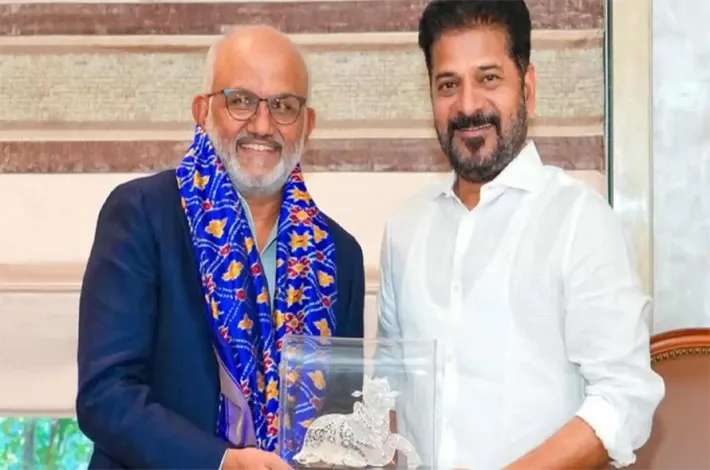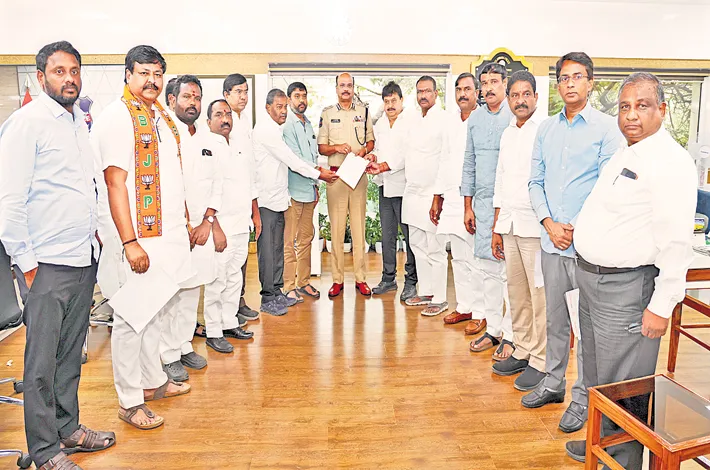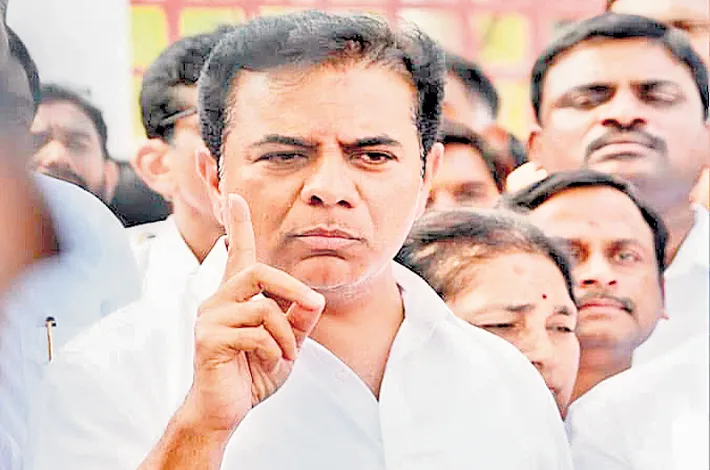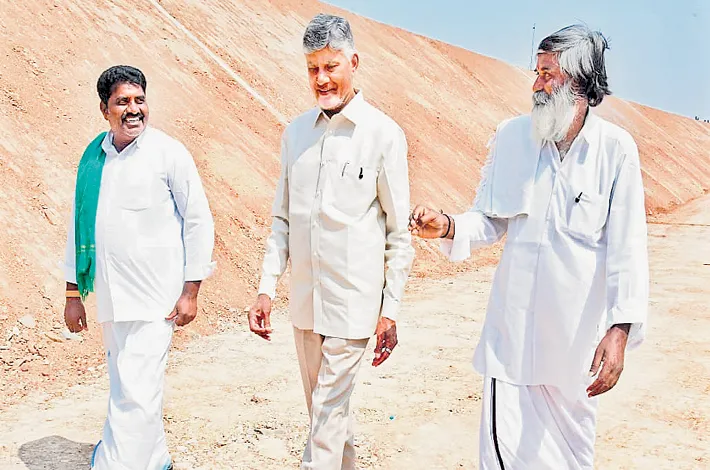KCR, Harish, Eatala held accountable
01-09-2025 12:00:00 AM
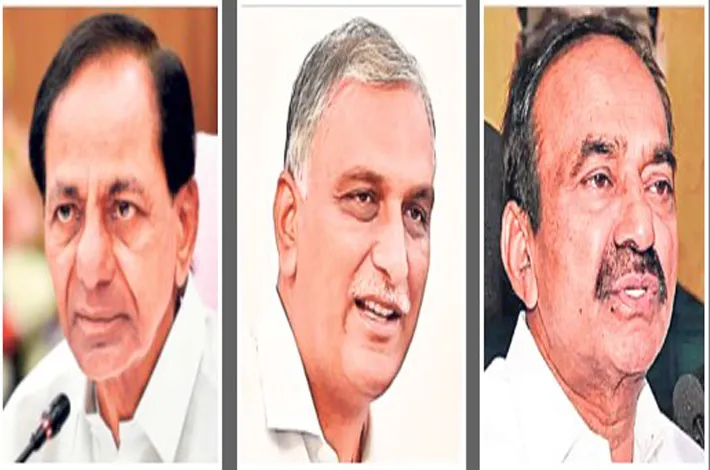
Ghose Commission on KLIS Rs. 1.1 Lakh Crore Fiasco
Remedial Measures Proposed The Justice PC Ghose Commission has outlined a series of remedial measures to address the damage caused by KLIS and prevent similar failures in the future. These include:
Structural Repairs and Safety Assessments:
Immediate repairs to the Medigadda, Annaram, and Sundilla barrages, with a focus on addressing structural weaknesses identified in the report.
Comprehensive safety audits of all KLIS components by independent experts to ensure long-term stability. Legal and Administrative Action:
Criminal proceedings against officials and contractors found guilty of fraud, misrepresentation, or negligence.
Disciplinary action against the six named irrigation engineers for misleading the Central Water Commission and the inquiry panel. Financial Accountability:
A detailed audit of all KLIS-related expenditures to identify and recover misappropriated funds.
Restructuring of the project’s debt to reduce the financial burden on the state, including negotiations with lending institutions for better terms. Policy Reforms:
Mandatory adherence to government business rules and Cabinet approval for all major infrastructure projects.
Establishment of a robust oversight mechanism to ensure transparency in project planning, tendering, and execution. Project Reevaluation:
A fresh technical assessment of KLIS to determine its viability and explore alternatives, such as reverting to the original Pranahita-Chevella scheme if feasible.
Engagement of reputed national and international irrigation experts to guide future phases of the project.
In a scathing 665-page report tabled in the Legislative Assembly on Sunday,Justice PC Ghose Commission of Inquiry has exposed systemic failures in the planning, design, construction, operation, and maintenance of the Kaleshwaram Lift Irrigation Scheme (KLIS), Telangana’s flagship irrigation project. The commission, has held former Chief Minister K. Chandrasekhar Rao (KCR), former Irrigation Minister T. Harish Rao, former Finance Minister Eetala Rajender, and senior irrigation officials directly accountable for what it describes as a colossal mismanagement of public resources. The report, which focuses on the Medigadda, Annaram, and Sundilla barrages, details procedural lapses, financial irregularities, and engineering failures, while recommending stringent remedial measures to address the damage and prevent future debacles.
A Project Marred by Unilateral Decisions
The commission’s findings paint a grim picture of a project driven by political ambition rather than technical rigor. The decision to construct the Medigadda, Annaram, and Sundilla barrages was attributed solely to KCR, who bypassed Cabinet approval and violated government business rules. The report notes that an expert committee formed in 2015 had explicitly advised against choosing Medigadda as a site due to its prohibitive costs and unsuitable geological conditions. However, this report was allegedly suppressed by KCR, Harish Rao, and then Irrigation Secretary S.K. Joshi, with the commission labeling the decision as “insincere and dishonest.”
The original Pranahita-Chevella scheme, proposed at Tummidi Hatti, was abandoned in favour of the Medigadda site without a proper Detailed Project Report (DPR), a critical violation of standard project guidelines. The commission found that KCR’s unilateral push for the KLIS redesign was not based on consensus or technical evaluation but on a predetermined agenda, raising questions about the motives behind the shift. This lack of due process set the stage for the cascading failures that followed.
Financial Mismanagement and Cost Escalation
One of the most alarming revelations in the report is the financial mismanagement that ballooned the project’s cost from an initial estimate of ₹38,000 crore for the Pranahita-Chevella scheme to over Rs 1.1 lakh crore for KLIS. The commission described the revised administrative approvals as “malicious” and designed to benefit contractors rather than serve public interest. High-interest, short-tenure loans from non-banking financial institutions like the Power Finance Corporation and Rural Electrification Corporation were secured, placing an unsustainable financial burden on the state.
The report highlights that the cost escalation was not merely a result of poor planning but also of deliberate decisions to favour certain contractors. The commission pointed to irregularities in the tendering process, noting that contracts were awarded without competitive bidding or transparency. The financial strain has left Telangana grappling with a debt burden that could take decades to resolve, with little tangible benefit from the project to date.
Engineering Failures and Structural Concerns
The commission’s investigation into the Medigadda barrage, a cornerstone of KLIS, revealed severe engineering lapses. In October 2023, six piers of the Medigadda barrage sank, prompting public outcry and necessitating the commission’s inquiry. The report attributes the structural failure to poor design, inadequate geological assessments, and substandard construction practices. Similar issues were identified at the Annaram and Sundilla barrages, raising concerns about the overall integrity of the project.
The commission criticized the irrigation department for ignoring warnings from experts and failing to conduct proper quality checks during construction. It also accused six senior engineers, including then Engineer-in-Chief C. Muralidhar Rao, of misleading the Central Water Commission and providing false information to the inquiry panel. The report recommends severe legal action against these officials for their role in the project’s failures.
Accountability and Political Implications
The commission’s findings place KCR at the center of the controversy, holding him “directly and vicariously accountable” for the project’s shortcomings. His insistence on fast-tracking KLIS, bypassing procedural norms, and suppressing expert advice has been cited as a primary cause of the debacle. Harish Rao and Eetala Rajender were also implicated for their roles in enabling these decisions, with the report suggesting that their oversight failures contributed to the project’s mismanagement.





